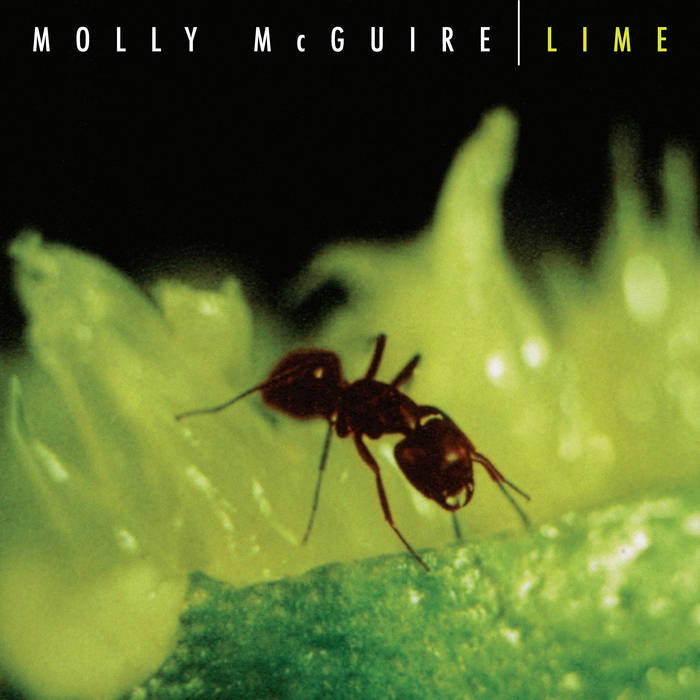Buck Meek – Haunted Mountain | Album Review
/4AD
I’ve often felt that it takes at least three listens for an album to truly imprint itself on my brain, but Buck Meek’s latest struck me with a stunning immediacy and an absorbency that was almost magnetic. Best known for being one-quarter of the Grammy-nominated Pitchfork-headlining indie band Big Thief, Meek has released two prior solo records, appeared in a Bob Dylan concert film, and also used to be married to Adrianne Lenker. From a life as full and complex as Meek’s, his prior solo work has been lovely and simple, but this has expanded considerably with Haunted Mountain.
Right from the beginning of the record, “Mood Ring” strikes the listener with something buzzy and complicated and new, a blurry melange of notes from guitars, maracas, and modular synthesizers. This track is fresh without being off-puttingly experimental; it bears almost no resemblance to the straightforward country-folk notes that composed his previous solo releases. “Cyclades” is another bright spot in the album’s progression, with electric guitars reminiscent of 60s power rock in both chord progression and instrumentation. (I scribbled “delectable” in my notes during my first listen.) “There are too many stories to remember / Too many stories to tell,” Meek sings, with the sonic richness of the music complementing the feeling of abundance.
Meek soon returns to his mellow folk roots further in the record; the title track, “Haunted Mountain,” co-written with Jolie Holland, features glossy lap steel guitar and a square dance percussion. “Lullabies” dips into the American folk classic “You Are My Sunshine” to touching effect. Meek strikes a delicate balance between rock and folk in “Undae Dunes.” This song features thumping percussion and a prominent bass romping behind the lap steel guitar; the composition feels crowded with influences and emotions.
At moments, the jaunty folk-inflected rock reminded me of contemporaries like MJ Lenderman and Wednesday, but without the restlessness and brashness that grants energy and power to the newcomers’ work. Meek’s music is reflective, dealing with themes of soulfulness and travel rather than Formula One racing and high-end butcher stores. It’s almost as though the newcomers to the country-rock scene (or bootgaze, or whatever you want to call it) are more grounded, while Buck Meek, although perhaps older and more worldly, seems to have less of a sense of self.
The album ends with an unusual collaboration of sorts; Meek was given the opportunity to finish a song by the Christian songwriter Judee Sill, who died in 1979, eight years before Meek was born. “The Rainbow,” with lyrics written three weeks before Sill’s death, is a partnership that crosses generations and folk styles to arrive, gauzelike, in our ears. I have complicated feelings about this song; it sounds vaguely like Sill, with slight seventies folk sensibilities; it sounds more like an influence and less like a replica. Whether or not it matches up with Sill’s intentions for the piece is unknowable. Meek stated that his intention with this song was to act as a “vessel” for the late Sill, and this is a staggeringly difficult role for any musician to play, technically and ethically. Yet what I hear is fundamentally a Buck Meek song, and to include it as the album’s closer is an extremely bold move.
In parsing this record for weakness, I could find only the unfortunate fact of the voice. Buck Meek is an extraordinary instrumentalist, but he is markedly less extraordinary of a singer. His voice has a smallness to it, a reedy and almost nasal quality, which leaves the instruments to fill the space where stronger vocals might be in other artists’ songs. I like his previous solo work a tremendous amount, which largely consists of him singing alongside a single guitar; the simplicity works for his voice there in a way that the more complex formulations fail to do. The upward-tilting vocals also make these songs feel exceedingly wistful, almost like children’s music. The overall effect is saccharine and goopy, with all the sincerity of a Big Thief song but none of the elegance.
That being said, this record is a remarkable and sometimes enjoyable foray, a valuable addition to the rapidly growing catalog of American country-rock music. There is a certain looseness in the production that befits the impromptu jam-like feeling that suffuses this record. This record reminds me of a family, commenting on love in all its complicated, imperfect, myriad forms.
Elizabeth is a neuroscience researcher in Chicago. She writes about many things—art, the internet, apocalyptic thought, genetically modified mice–on her substack handgun.substack.com. She is from Northern Nevada.





